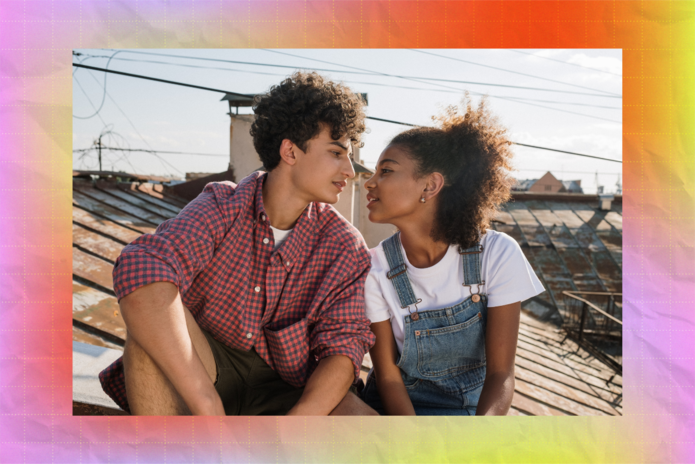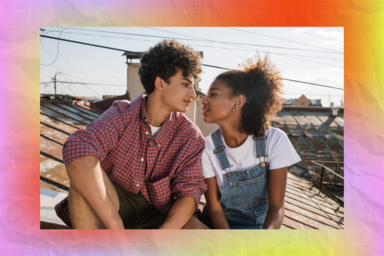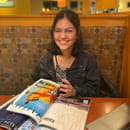There are as many ways to love as people in the world.
I was convinced I knew everything about love in the seventh grade. I had a crush on a guy for two years and it was the biggest topic of conversation with my friends, so I was sure my experience made me an expert on the subject.
From what I watched on TV and read on books, I was convinced that love was about the grand gestures and the passion and intensity of it all. Love always meant the same as crying and kissing in the rain, as asking for forgiveness with a song in front of the whole school. It took me many more years to realize how wrong I was.
When love first came, it was not a blazing fire or a swirling storm. Instead, it felt warm, like recently baked chocolate cookies and drinking hot tea during a rainy day. Love proved to be about giving as much a receiving, about celebrating each other’s wins, about being there for each other even when we didn’t understand the things we were going through.
The hardest lesson I have learned from love is that we feel and show our emotions differently. The way Gary Chapman, the author of “The 5 Love Languages,” puts it on his website, “I can tell you from experience that very few of us know how to [love] in ways that are truly meaningful to our loved ones.”
Chapman’s love languages are acts of service, receiving gifts, quality time, words of affirmation and physical touch. Although they might sound arbitrary, these “languages” are more about what we appreciate and receive as love from other people, and like the tower of babel, everyone speaks a different one.
However, if me and my best friend appreciate different gestures, it doesn’t mean we can’t love each other; we just need to adapt the way we do it. Personal relationships are about constant trial and error, and what matters is not that we don’t make mistakes, but that we learn from them and show an effort to work on fixing them.
Damian Duplechain, the executive director of The Center for Marriage and Family Relationships, refers to marriage as an “ongoing class.” He wrote on the website for the organization, “My relationship advice is to consider each triumph and setback that you face as individuals and as a couple to be an opportunity for learning.” Life has always been full of learning, and the beauty of personal relationships is that they give you someone to learn with.
People and emotions are complex –there are entire sciences behind studying them– but we can look at them as learning processes rather than just challenges.
Another important factor of caring is to acknowledge that there are different types of love. The Greeks separated love into seven types. Elizabeth Rider identifies them in her blog as eros (romantic, passionate), philia (affectionate, friendly), storge (unconditional, familial), ludus (playful, flirtatious), pragma (committed, long-lasting) and agape (selfless, universal). We can have all these types in our lives, and they are all just as important to understand and take care of.
In regards of the types of love, something I have learned is that we need to prioritize some without neglecting others. For me, my family will always be first since they have given me so much and are a crucial part of my life. So, when it comes to friendships or relationships, I must put them aside sometimes and prioritize time with my family. However, from personal experiences I have learned to be careful not to let the prioritization turn into neglect. It is common when you get into a new romantic relationship, for example, that you might stop hanging out with your friends. While it is understandable to want to spent time with your partner and it makes sense to have them high in the list of priorities, your friends matter too, and you must remember they’re the ones who will be there for you if the relationship ends.
It is also important to remember that you can care a lot about a person, but relationships must be reciprocal. The way my parents always say, the people in your life are supposed to add to it, not take away from it. Relationships should be two-way streets; your friend, partner or family member should be willing to learn about you as much as you’re learning about them, and you should both want to work on building something better together. Like Dr. Gary W. Lewandowski Jr. says in the New York Times article about bettering relationships, “If your partner is helping you become a better person, you become happier and more satisfied in the relationship.”
Most importantly, I think we should always remember that experiences are what teach us the most. We have to make mistakes, end relationships and lose friends so that we can become better people and find better people.
I understand now that seventh grade me didn’t know the half of it about love, and honestly, I probably don’t know much yet and will look back to this in a couple of years to see how clueless I was. But the biggest takeaway I’ve had so far is that love should not be the suffering and fighting portrayed in most media. Love looks different for everyone, and it is full of constant learning. I know now that it was never about just the struggles or just the pretty parts, but about going through all of it together. Love was never a battlefield; it was always a home.


